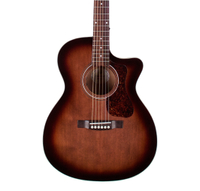John Mayer’s guitar gear: what you need to nail the super-smooth six-stringer’s sweet blues tones
Reach for the Silver Sky, folks! It’s time to add some boutique panache to the backline and sex up your stompbox game

We often catch ourselves talking about boutique tone. Boutique amps, boutique overdrives… “Blah blah Brownface ’61 Fender mojo…” But let’s talk about about a player how pretty much embodies boutique: the blues-pop superstar John Mayer.
Now, it’s not that everything he uses is super-expensive, though some of course is, it is that he puts together a signal path that complements his playing and buttresses his songwriting, the effect of which is that he has this irresistible candied funk tone, and a honeyed cream blues tone that’s sharpened by the subtle single-coil quack of his PRS Signature Silver Sky’s noiseless single coils.
Check out New Light for how this works in practice. It’s a neat trick, and it works on all audiences – pop, blues, funk, gear nerds…
We might not be able to source you a Dumble Steel String Singer, but there is no shortage of production-line gear that’ll get you on the road to sumptuous tone. Will it be Mayer-esque, where all in attendance audience with close their eyes and make it look like they have just enjoyed an Alain Ducasse degustation menu? Hopefully. But adding that soupçon of secret sauce is on you and your playing.
Electric guitars
Well, we all know what the number one pick is going to be here, but absent of any suspense or surprise as to the must-have guitar for Mayer fans, may we take this opportunity to urge you to buy one now rather than later. Who is to say that the Silver Sky will fall out of production, but look at how many signature guitars that were once super-popular have and then accordingly accrued ridiculous prices on the vintage market.
Buying a modern production-line guitar with a view to its vintage sell-on potential might be foolhardy, but so too is sitting it out, especially when the PRS Silver Sky is expensive but not eye-wateringly so - at least as far as the prices for high-end guitars go.
No expense spared

PRS Silver Sky - $2,299
The Silver Sky remains one of the most-talked about signature electrics in history. It was controversial, not least because guitar culture is resistant to change in broad strokes, and here was PRS Guitars working with a high-profile star on an S-style based on a ‘60s-style Stratocaster, and then had the temerity to give it a a scooped cutaway and a reverse headstock.
Anyway, people can’t get enough of it now. The cutaway allows you to reach the spotlight notes; the reverse headstock, complete with locking tuners, keeps things nice and solid. The 7.25” fretboard radius lets you wrap your thumb around those chords like Hendrix. Elsewhere, you have noiseless single coils offering high output with little hum, a tremolo bar that sits parallel to the body allowing downwards wobble only, and a variety of exquisite finishes.
On a budget
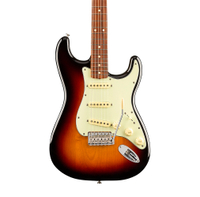
Fender Vintera ‘60s Stratocaster - $899.99
Fender’s Vintera range is a real doozy and comprises vintage-inspired instruments that are built at the company’s Mexico plant and retail for a price that many of us can stretch to. Those looking for the vibe and feel of a ‘60s Strat won’t be disappointed - as such it is not a million miles away from a Silver Sky, and shares the 7.25” fretboard radius.
The neck is a comfortable C-profile, and you’ve got vintage-style tuners and re-voiced single-coil Strat pickups for that ‘60s snap and chime. The six-point tremolo makes it nice and easy to tweak intonation.
The Vintera ‘60s Strat also comes in a choice of three finishes - Ice Blue Metallic, Surf Green and 3-Color Sunburst - a little more conservative but each every bit as eye-catching as those on the Silver Sky.
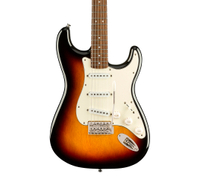
Squier Classic Vibe ‘60s Stratocaster - $399.99
Like the Vintera Series, the Squier Classic Vibe uses Fender classics of yore as inspiration and aims for an even more accessible price point. The ‘60s Classic Vibe Strat is a little different to the Vintera. It has a 9.5” fretboard radius which gives it a more contemporary feel, but the sonics allied to the little details such as the headstock style make this a smart choice for the money.
We love the gloss finish on the neck. It looks like it dates back to a time when you could smoke a cigarette in a bar. And the synchronized tremolo with stamped steel saddles is a lovely piece of hardware. Finishes comprise Lake Placid Blue, Candy Apple Red, and 3-Color Sunburst. The classics.
Acoustic guitars
No expense spared
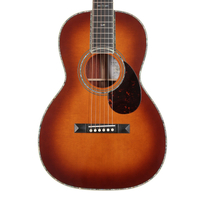
Martin 0042JM-C John Mayer Crossroads Cocobolo - $9,999
If you can spring for this you will be one of only 50 people in the world to own one of these immaculate parlor-sized Martins, and you’ll have a seriously awesome little tone machine.
This is based on Mayer’s 00-42 Stage Coach and was produced for the 2019 Crossroads Collection – a “significant portion” of the proceeds from the sale go to Crossroads Centre Antigua, which provides therapeutic addiction treatment. Maybe you could write it off as a deductible? Well, something to think about.
Spec-wise you’ve got Sitka spruce on the top, sitka spruce bracing, with Cocobolo on the back and sides. Little details such as the grained ivoroid body binding and the head-plate’s Paua pearl inlay will make you swoon. Mayer says one of the reasons he loves parlor-sized guitars is because they are travel-friendly. You would not want to check this in the hold.
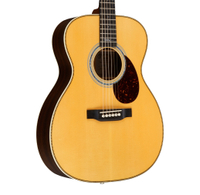
Martin OMJM John Mayer Signature Orchestra Model - $3,759
Now we are talking. At this price, it is still a premium US-built Martin, an aspirational guitar and a dream for most of us, but it is a little more realistic in terms of the price.
This is based on the 2002 model that was limited to 404 instruments and sold like hot cakes, and it features and Engelmann spruce top with East Indian rosewood on the back and sides. The neck is Spanish cedar, the fingerboard African ebony. The tonewood arithmetic alone says “yes please” to this.
The onboard electronics are Martin Gold Plus, a proprietary unit that’s built by Fishman and offers a flat response that lets the guitar’s voice shine through. It is ideal in smaller-bodied acoustics such as this, where the tone is already show-stopping. The build quality is tip-top.
On a budget
Guild OM-240CE - $449
So we need an acoustic that most definitely has solid Sitka spruce on the top with some kind of mahogany on the back and sides, and it's got to look nice for the photos and the stage, with an onboard pickup... Hmm, this here arched-back, mid-sized orchestra model from Guild's Westerly series would do the trick.
You'll get change from 500 bucks, an immaculate build, a Guild AP-1 piezo pickup, a comfortable C-profile mahogany neck, Venetian cutaway for noodling or high-end funk strumming, a traditional bone nut and saddle - and, ultimately, an electro-acoustic that can cover pretty much any style.
Amplifiers
Mayer has gone through an abundance of guitar amps in his time. He has played a number of Fender amplifiers. There have been Vibroverbs, Vibro-King Customs, Band-Masters, Super Reverbs and more. The Dumble Steel String Singer has been a favorite of his but you’d sooner find a tin of tartan paint down Home Depot than one of those.
Get The Pick Newsletter
All the latest guitar news, interviews, lessons, reviews, deals and more, direct to your inbox!
With that in mind we’ve got to play the percentages and see which would give us the most archetypical Mayer tone. As the top of the piece we mentioned creamy blues and candied funk, but let’s at to that elasticity.
There is a litheness to Mayer’s sound so we want an amp that has that sort of response, that abundant clarity and then just the right amount of juicy breakup when the moment calls for it. There has to be a dynamic range so wide you could drive cattle through it.
Choosing the right amplifier is quite possibly the most important decision you’ll make. Now, the Dumble combos are off the table, and so is Mayer’s Two-Rock signature head for similar reasons, but there are still a few decent options.
No expense spared
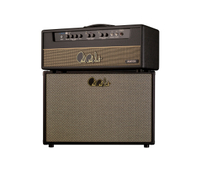
PRS J-MOD 100 John Mayer Signature 100-watt head and matching 2x12 Cabinet - $7,080
Mayer has spoken of using his amplifier “like a big clean microphone” and leaving much of the gain-sculpting to his pedalboard, and so it is no surprise that his signature PRS amp has heaps of headroom. There’s no onboard reverb – Mayer uses a standalone spring reverb unit from Victoria Amps, the Reverberato, and a Bricasti M7 for more modern ‘verbs. There is also no hiding place; the J-MOD 100 has a huge dynamic range, and the sort of response that will expose sloppy playing, but the other side of that is it rewards players with good feel and really make your tone pop. That’s your secret sauce - technique and feel.
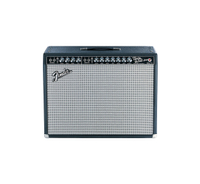
Fender Vintage Reissue '65 Twin Reverb 85W 2x12 Guitar Combo Amp - $1,499.99
As tempted as we were to suggest a Two-Rock Crystal or similar, perhaps this ’65 reissue Twin might be a better bet, saving you from selling that kidney on the internet, and yet still offering a similarly formidable dynamic range. Under the hood there are Schumacher transformers, tremolo and tube-driven reverb and while this has a printed circuit board build, with only the tube sockets hand-wired, the components have the same values as the originals and if your playing is on-point your tone will be too. Enjoy the headroom.
On a budget
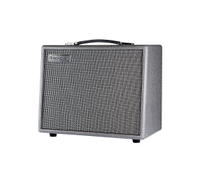
Blackstar Silverline Standard 20-watt combo - $429.99
When Blackstar was rolling out the Silverline series, it used the “B-word,” declaring that, with this technologically advanced new suite of amplifiers, boutique tone was officially going digital.
It had a point. With SHARC DSP voodoo at its core, TVP technology to model six types of classic tube power amps, each accessed via a rotary dial, onboard effects, programmable presets and connectivity, there’s not a lot the Silverline can’t do, and at this price it’s a steal.
Pedals
There’s a sense of breathless excitement and wonder surrounding a confirmed sighting of John Mayer’s pedalboard that’s akin to waking up one morning and opening your bedroom curtains to find the yeti doing burpees on your lawn. Again, it is his tone, beauty of it, the mystery - it’s like the Mona Lisa’s smile rendered in sound.
We can’t replicate his hands with a 3D printer and study them under laboratory conditions so looking at his signal path at least gives us something physical to reference. But we do have a pretty good idea of what he uses - at least, what was on his ‘board last year when he was touring with Dead and Company. Some stompboxes are essentials, such as an Ibanez TS10 Tube Screamer and Klon Centaur. The latter is out-of-production and costs a mint but one of the abundant Klones will do the trick.
A boost pedal is crucial, too, just for a little push for solos and to work those tubes harder. Then we’ll need some compression, delay, and if you’re going with the PRS J-MOD 100 you will need some reverb and tremolo.
No expense spared
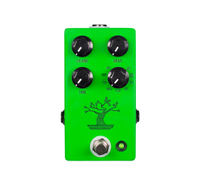
JHS Bonsai overdrive - $229
There is no doubt a drawer in the Mayer household that is full of Ibanez Tube Screamers of various vintages, each with their own low-gain mid-bump magic. You can have a similar setup with the Bonsai, with the ever-resourceful Josh Scott having found a way to house nine replica Screamers in one small but heavy-duty enclosure.
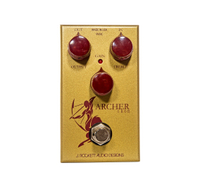
J. Rockett Audio Designs Archer Ikon overdrive/boost - $199
One of the best Klon clones on the market, the Archer can be used as a clean boost or as an overdrive. The layout is super-simple; three controls for output, level and gain. Where the Tube Screamer gives you that mid-boost - perfect for accompanying Fender amps - the Archer’s tube-like overdrive won’t step on your original signal too much. It’ll just be, y’know, crunchier.
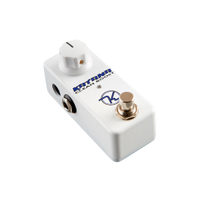
Keeley Mini Katana Clean Boost - $199
The Keeley Katana just adds a bit more juice to your signal, and Mayer is a big fan of that. It might sound simple, and it is, but the effect can be write large in your tone as your amp reacts to heftier signal.
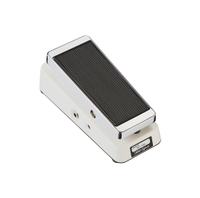
Xotic Wah XW-1 - $260
Based on the legendary Clyde McCoy wahs of the 1960s, the XW-1 gives you full control over its frequency range, bias, resonance and the width or intensity of the signal. You can also adjust the tension of the treadle.
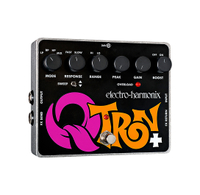
Electro-Harmonix Q-Tron+ - $167.60
The Q-Tron+ is an awesome envelope filter that has all kinds of crazy tones you can play with. There’s a lot to get into with this pedal, but you’ll need it for some of Mayer’s more outré tones. Check out Don’t Trust Myself (with Loving You) for a reference. Mayer has used all kinds of envelope filters, and if you can find a Roger Linn AdrenaLinn III unit second-hand that would be ideal for recreating the Heartbreak Warfare intro. But this is excellent, it was on his Dead And Company board, and its priced for regular folks.
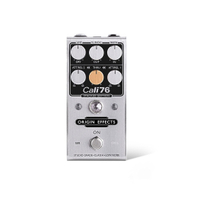
Origin Effects Cali76 Stacked Edition Compressor Pedal - $379
Add some studio-quality squish to your tone with the Cali76. It’s not cheap, but it could well be the best compressor pedal on the market, with a Thru control for blending single-stage Cali76 and dual-stage SlideRIG signals.
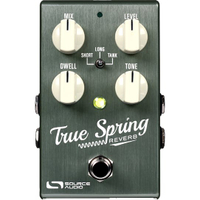
Source Audio True Spring Reverb w/ Favorite Switch - $249
The spring reverb on this exceptional and you can switch between short, long, and tank styles. The tremolo modes are Opto, Harmonic, and tube Bias tremolo. Assign a setting to the Favorite Switch for toggling between two tones. There is a lot to tweak with this, and there is the free Neuro Editor app allows for deep edits, saving up to three presets and access to nine reverb engine types. There are a heap of stereo and mono routing options, MIDI compatibility (with the Audio Neuro Hub) and you can hook up an expression pedal to it. And it has switchable buffered/true bypass. Phew! That’s a lot of stuff.
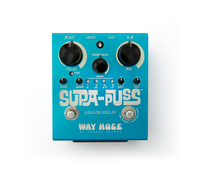
Way Huge Electronics Supa-Puss Analog Delay - $249.99
Mayer has been known to use this and the its younger sibling but we’ll go for the redux for the extra tweakability. If you prefer a more simple layout, go for the Aqua-Puss - it’s awesome - but here you have got up to 900 milliseconds of delay time (three seconds using tap tempo!), subdivision controls, tap-tempo, an expression pedal input and more. Jeorge Tripps, who designed this beauty, truly is the Mozart of bucket-brigade chips.

Line 6 DL4 Delay Modeler - $299.99
The industry standard for a do-it-all delay that’s easy to use and despite packing a considerable price tag offers plenty of value, with plenty of room for experimenting with different times and textures.
On a budget
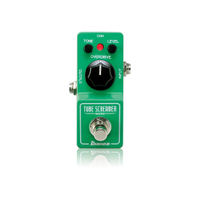
Ibanez Tube Screamer Mini - $79.99
It measures only 1.375" wide and 3.5” long and yet the mid-range has a punch like Mayweather. The mean, green enclosure houses the JRC4558D IC chip and an analog circuit that stays faithful to the TS808.
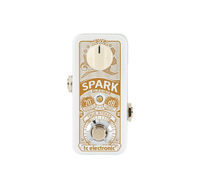
TC Electronic Spark Mini Booster - $49.99
Fifty bucks says this pedal might be the best-value secret weapon you ever put in your signal path. The mini version takes up hardly any space on your pedalboard but packs a fair punch.
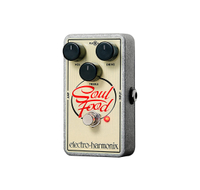
Electro-Harmonix Soul Food - $86.20
As affordable K-style pedals go, the Soul Food is right up there. It’s small and it’s simple, and it’ll add a nice bit of clear drive to your signal.
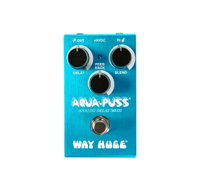
Way Huge Electronics WM71 Mini Aqua-Puss Analog Delay - $149.99
Set it short for some 20ms slap-back to thicken your tone, or up to 300ms for a warm analog delay. This is a versatile box. It can be subtle or it can lead you down the path for tape-echo oscillation. The blend control is your friend.
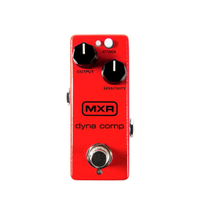
MXR Dyna Comp Compressor - $99.99
A little Dyna Comp squash in your signal will help clean up those rhythmic funk strums. Just don’t be too over-reliant on it. And that brings us nicely to the coda: all this gear can get you in the ballpark but practice will get you to the where the technique feels effortless. And the tone? Well that almost takes care of itself.
Jonathan Horsley has been writing about guitars since 2005, playing them since 1990, and regularly contributes to publications including Guitar World, MusicRadar and Total Guitar. He uses Jazz III nylon picks, 10s during the week, 9s at the weekend, and shamefully still struggles with rhythm figure one of Van Halen’s Panama.
“It holds its own purely as a playable guitar. It’s really cool for the traveling musician – you can bring it on a flight and it fits beneath the seat”: Why Steve Stevens put his name to a foldable guitar
“Finely tuned instruments with effortless playability and one of the best vibratos there is”: PRS Standard 24 Satin and S2 Standard 24 Satin review
